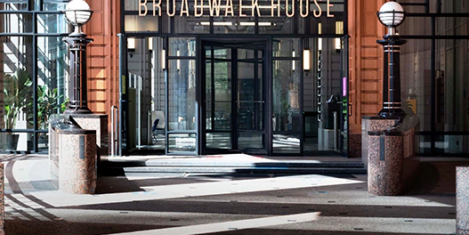To provide the best experiences, we use technologies like cookies to store and/or access device information. Consenting to these technologies will allow us to process data such as browsing behaviour or unique IDs on this site. Not consenting or withdrawing consent, may adversely affect certain features and functions.
The technical storage or access is strictly necessary for the legitimate purpose of enabling the use of a specific service explicitly requested by the subscriber or user, or for the sole purpose of carrying out the transmission of a communication over an electronic communications network.
The technical storage or access is necessary for the legitimate purpose of storing preferences that are not requested by the subscriber or user.
The technical storage or access that is used exclusively for statistical purposes.
The technical storage or access that is used exclusively for anonymous statistical purposes. Without a subpoena, voluntary compliance on the part of your Internet Service Provider, or additional records from a third party, information stored or retrieved for this purpose alone cannot usually be used to identify you.
The technical storage or access is required to create user profiles to send advertising, or to track the user on a website or across several websites for similar marketing purposes.
 Skills have become the new currency of workforce and talent strategies, as more than half of organisations that responded to the 2021 Mercer Global Talent Trends survey are targeting upskilling and reskilling of critical talent pools to drive workforce transformation. (more…)
Skills have become the new currency of workforce and talent strategies, as more than half of organisations that responded to the 2021 Mercer Global Talent Trends survey are targeting upskilling and reskilling of critical talent pools to drive workforce transformation. (more…)








 Workers across the UK could return to offices faster than anticipated, according to a new RICS survey of facilities managers. According to the poll, a growing number of respondents say that up to 80 percent of employees will head back once the pandemic is resolved. This is up from less than 60 percent expected in the same poll from the previous quarter ending November 2020. As evidence suggests the UK vaccination programme is taking hold across the country, results to the
Workers across the UK could return to offices faster than anticipated, according to a new RICS survey of facilities managers. According to the poll, a growing number of respondents say that up to 80 percent of employees will head back once the pandemic is resolved. This is up from less than 60 percent expected in the same poll from the previous quarter ending November 2020. As evidence suggests the UK vaccination programme is taking hold across the country, results to the 
 A
A 
 As lockdown restrictions are eased and employees head back to the office a new report is calling for businesses to reinvent the world of work. The Human Organisation report highlights how the current workplace model is based on bureaucracy and hierarchy, which stifles employee empowerment and creativity.
As lockdown restrictions are eased and employees head back to the office a new report is calling for businesses to reinvent the world of work. The Human Organisation report highlights how the current workplace model is based on bureaucracy and hierarchy, which stifles employee empowerment and creativity. 
 A survey by
A survey by 
 The Covid-19 pandemic had a serious impact on the home office furniture market in 2020, according to a new
The Covid-19 pandemic had a serious impact on the home office furniture market in 2020, according to a new 


 A
A 
 As employees continue to be forced home during the pandemic, nearly half of them are reporting high levels of exhaustion. A new study by
As employees continue to be forced home during the pandemic, nearly half of them are reporting high levels of exhaustion. A new study by 
 Years of pathologising offices should have prepared us for the patholigisation of virtual spaces. It seems like months since anybody has come out with that tired old rant about open plan. Certain vociferous and obsessive
Years of pathologising offices should have prepared us for the patholigisation of virtual spaces. It seems like months since anybody has come out with that tired old rant about open plan. Certain vociferous and obsessive 
 With the Government setting out its roadmap for the lifting of Covid-19 restrictions, workers are set to return to offices later this year. However, new working practices mean they will still split their time between the office and home.
With the Government setting out its roadmap for the lifting of Covid-19 restrictions, workers are set to return to offices later this year. However, new working practices mean they will still split their time between the office and home. 








March 9, 2021
The office will bounce back, but not as we remember it
by Luke Munro • Comment, Property, Workplace design